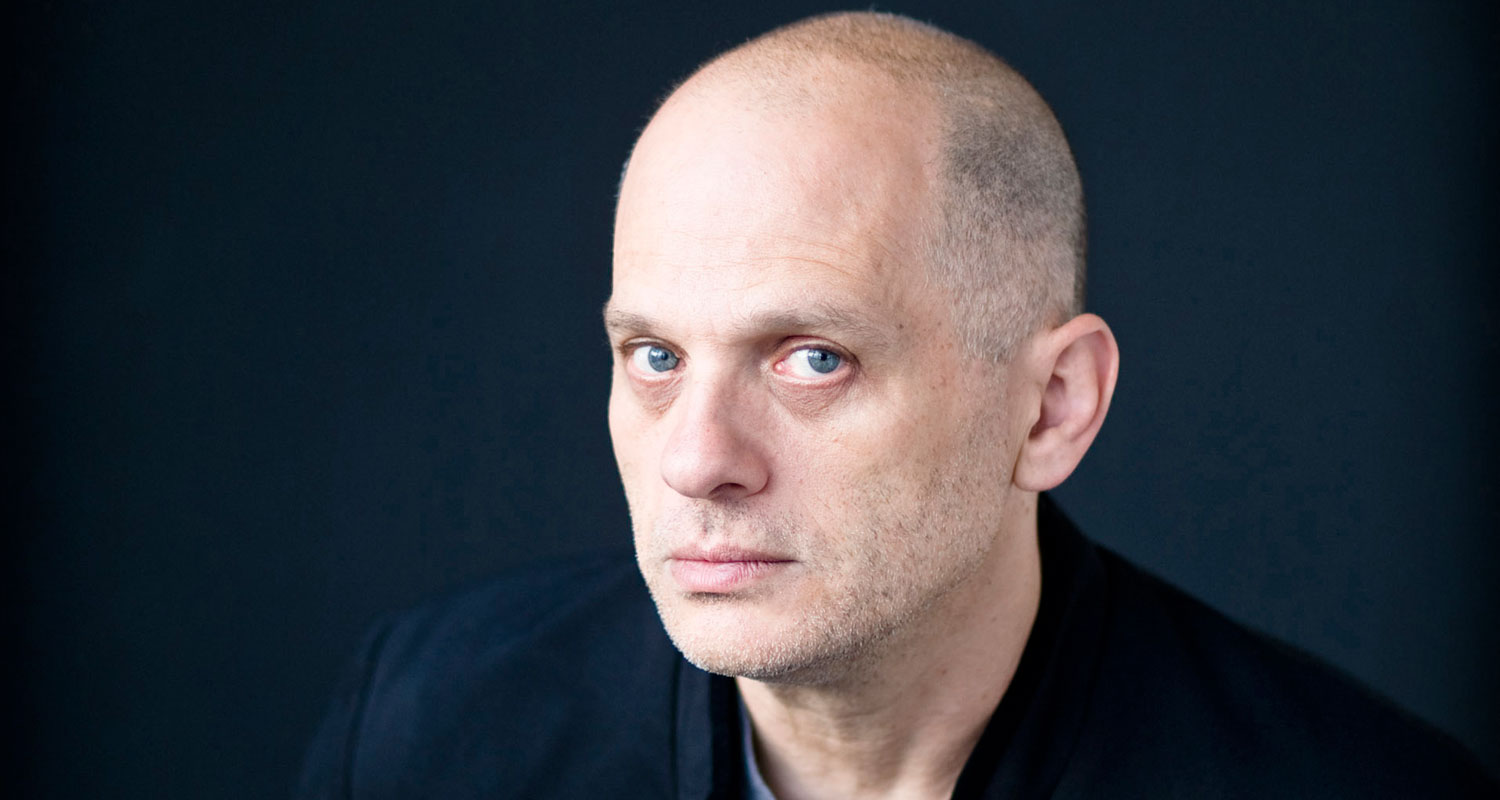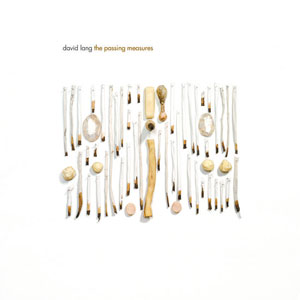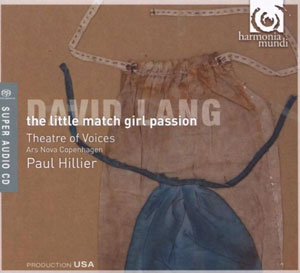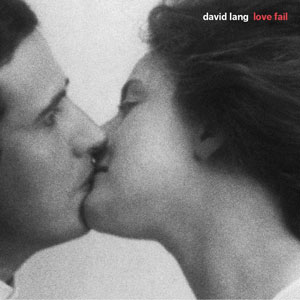Contemporary composer: David Lang
Kate Molleson
Wednesday, March 15, 2017
The Los Angeles native creates music of pristine beauty through the pared-down purity of his scores, says Kate Molleson

There’s no mistaking a David Lang score. At 59 he has achieved what few composers do in their lifetime, or ever: a definitive sound that is popular, versatile, simple and instantly recognisable. He has written opera, dance, orchestral, chamber, solo, electronic, film and vocal works, been awarded the Pulitzer Prize and the Rome Prize, and been nominated for Academy and Golden Globe Awards. He teaches at Yale and co-founded one of the world’s most commercially successful contemporary music outfits with its own festival and record label attached. In terms of his profile and reach within contemporary American music, in terms of classical/pop-culture crossover, Lang is surely next in line only to Philip Glass.
In the 1980s he helped to set up Bang on a Can, a collective that changed the way generations of New York composers have worked together ever since. He – they – were innovators, shaker-uppers, kick-starters of a musical zeitgeist. If aspects of the classic Bang on a Can house style now feel dated, that doesn’t undermine the boldness of the original project or the impact of its legacy.
In recent years Lang has been steadily honing his own music into increasingly fine-sculpted meditation pieces. He’s the stylistic heir to Glass, Reich, Pärt and Andriessen, but also to Pérotin and Hildegard: the term ‘neo-plainchant’ might be the closest description of his hyper-pure vocal writing. He enjoys a paradox, he told me: he’s a Jew who makes religious music for Christian stories; a West Coaster whose music epitomises a certain New York sound; an aesthete who writes for Hollywood. ‘Religion uses paradoxes all the time,’ he pointed out. ‘Think of “eternal flame” or “world to come”. You can use words to propose paradoxes then project depth into the senselessness. That’s what I try to do in my vocal music. I take a word that has no emotional content – a word that has a pre-agreed rational meaning – and deploy that word as the doorway to a powerful experience.’
Lang grew up in Los Angeles, the son of a Lithuanian doctor and a German librarian. ‘I’m terrified of actors,’ he joked, even though he’s approaching a Hollywood A-list himself since writing music for Requiem for a Dream and more recently for Paolo Sorrentino films. Lang’s film music is uncompromisingly not a backdrop – even though the sound tends to be stripped back and pristine, it usually serves as the emotional wrench of any scene. This year he was nominated for a Golden Globe for simple song #3, the fulcrum of Sorrentino’s Youth, starring Michael Caine. He was beaten on the night by Sam Smith’s theme tune for the latest Bond film. ‘I come from LA,’ he shrugged, ‘so I have a love-hate relationship with that whole world.’
It wasn’t movie music but a Shostakovich symphony that caught Lang’s ear aged nine and inspired him to start composing. By 13 he was taking intensive lessons with composition teachers at the University of California. To humour his parents he enrolled to study chemistry at Stanford but soon switched to music: ‘The chemistry classes were at 8am to weed out people like me,’ he later explained. ‘Music was at 1pm – so it was no contest.’
In person Lang is droll, softly spoken and inquisitive, a compact man with thick-rimmed round glasses and intense blue eyes. He lives with his wife, the artist Suzanne Bocanegra, on the top floor of a Greenwich Village apartment block with a brightly graffitied street door and no light on the way up several flights of creaky wooden stairs. ‘An old-fashioned Soho artist’s loft,’ he calls it. ‘We feel like we are historic re-enactors!’
In the mid-1980s, then a student at Yale, Lang met fellow composers Julia Wolfe and Michael Gordon and sensed a common leaning towards pop-infused, sunny-harmonied, propulsively clangy post-minimalism. After graduating, Wolfe and Gordon got married and all three moved to New York. There, they encountered something of a cultural stand-off: stuffy uptown places like Lincoln Center versus dirty avant-garde jazz bars of the West Village. On the BOAC website, the founders explain that they ‘started this organisation because we see making new music as a utopian act’. In 1987 BOAC staged the first of what would become annual marathon concerts. Years later, Lang marvelled that ‘we were all packed in together, along with composers John Cage, Steve Reich, Pauline Oliveros, Milton Babbitt, listening to this great music’.
The three Bang on a Can founders have each gone on evolving, with Lang increasingly becoming the glassiest, the sparest, for some listeners the most mannered. Almost all of his recent works have lower-case titles: man made; reason to believe; international business machine; how to pray, for orchestra. His music seems to be getting leaner and leaner, as if stripping back layers of clutter and searching for some nugget, some essence. ‘I’m trying to get rid of things I did when I was younger,’ he explained. ‘Things I did because music always does them, because careers always have them, because audiences love them.’
He described being an adult composer as purging himself of all of that. ‘I’ve been figuring out what’s on the topic and what’s off the topic – that’s the struggle I’ve been having for the past 20 years.’ And by ‘the topic’ he means ‘an emotion which I am interested in, invested in. How I can use every piece as an opportunity to examine myself. It sounds selfish and it probably is: I feel like I get to spend all this time in the studio examining myself! But if I’m honest with myself, other people will respond because I’m not trying to make them cry or laugh – I’m not manipulating them. The paradox is that if I’m honest with myself, maybe the music can help listeners to be honest with themselves, too.’
In the introduction to a concert series he curated at Carnegie Hall in 2014, Lang wrote that ‘we often listen to music as if it has a tale to tell, teasing a narrative out of all the tunes and harmonies and changes’. But, more and more, Lang’s own music seems to be less about narrative, more about creating a space for personal reflection. Even in the works that do overtly tell a story – his setting of Hans Christian Andersen’s short story, the little match girl passion, or his remake of the Tristan legend in love fail – his ultra-crystalline text settings are more about using repetitive sounds and rhythms and pregnant silences to create a sense of ritual and meditation than they are about creating a drama. In both of these particular pieces, the singers add to the ceremony by accompanying themselves on percussion instruments.
Maybe this is why Lang has become a go-to composer for collective commemorative pieces. This July, the East Neuk Festival premiered Lang’s Memorial Ground, a new work marking the centenary of the Battle of the Somme and bringing together amateur and professional choirs across the UK to sing crowd- and Google-sourced texts around the theme of remembrance. Other recent projects have included the whisper opera at Lincoln Center, in which singers whispered into the ears of the audience, and crowd out for 1000 people yelling, performed on a street in Birmingham. For Paolo Sorrentino, the key to Lang’s mass appeal is his ability to summon the nub of whatever emotion happens to be required. ‘He’s able to create music that’s very complex,’ the director noted, ‘but also music that’s very accessible while remaining refined and intelligent.’
Recommended recordings

the passing measures
Birmingham Contemporary Music Group
Cantaloupe (7/01)
Process music ‘about the struggle to create beauty’ for bass clarinet, amplified orchestra and women’s voices.

the little match girl passion
Theatre of Voices
Harmonia Mundi (1/10)
The quintessential Lang sound, this tender, bleak vocal work won him the Pulitzer Prize in 2008 and is entrancingly sung and played.

love fail
Anonymous 4
Cantaloupe (10/14)
More poised four-voice a cappella, this time with chopped-up texts by Lydia Davis, Marie de France, Gottfried von Strassburg, Béroul, Thomas of Britain and Wagner.
Lang facts
Born
Los Angeles; has lived in New York since the late 1980s
Studied
With Hans Werner Henze, among others
Breakthrough
Co-founded Bang on a Can in 1987 with composers Julia Wolfe and Michael Gordon, all of whom still co-direct the ensemble
Prize
Won the Pulitzer in 2008 for the little match girl passion











